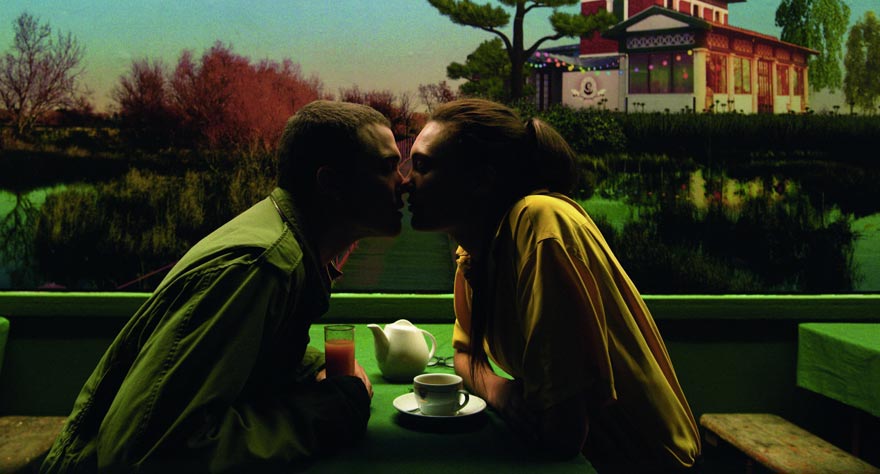
Gaspar Noé's sensational sexual epic is both a numbing and impressive feature.

Gaspar Noé's sensational sexual epic is both a numbing and impressive feature.
Gaspar Noé’s Love is anything but pornography. Pornography makes no attempt to delve into the psychology of the humans portrayed within; it contains actors as models, rather than actors as characters with any sort of depth. While Murphy (Karl Glusman), Elektra (Aomi Muyock) and Omi (Klara Kristin), the three chief characters, may not be the most complex individuals you’ll come across in the cinema this year, they still have hopes and dreams and aspirations, and undoubtedly transcend the notion of “the pornographic model” by a long shot.
Love has such a loosely constructed narrative that it’s difficult to summarize, but it essentially examines the mind and memories of its American protagonist Murphy, now married and with a child, as he reminisces on the greatest love affair of his life with French ex-girlfriend Elektra. What sparks this nostalgic exploration is a phone call from Elektra’s mother, letting Murphy know that she hasn’t heard from her daughter in months and wonders if he has any knowledge of her whereabouts.
The opening scene is a lengthy static shot of Murphy and Elektra engaged in an explicit, unsimulated sexual act. This directorial decision, which paves the way for the remainder of the film’s imagery, should inspire excitement from audiences, but does the excitement hold up for the rest of Love’s 135-minute runtime? Not quite, because at least half of the film turns out to be repetitive scenes of other sexually graphic acts, from different angles and in different positions, but dull and homogeneous in almost every other way.
It’s clear that Noé’s goal here is to expose his audience to such an immense degree of sexual imagery that it would begin to feel like a natural and comfortable thing to view in a non-pornographic film. Unfortunately, it has the opposite effect; desensitizing the viewer to the sex being portrayed, with excitement quickly fading into exhaustion midway through the second act. At least all of the sex scenes made the dialogue-heavy sequences—like the intense verbal matches between Murphy and Elektra, which effectively portray the bi-polar, love-hate nature of fiercely passionate relationships—that much more fascinating.
Unfortunately, these rare, existential moments in Love aren’t portrayed in enough detail, or given enough screen time, to really pack much of a punch. They come and go, forgotten among the sex scenes. The emotional peak of the film comes in the third act during a beautiful moment of vulnerability for Murphy. He sits weeping in a bathtub while holding his child, who is also weeping. This moment casts the protagonist in a state of pure nakedness more than any elongated scene of copulation. The female characters, on the other hand, are one-dimensional from start to finish and seem to exist merely as sexual objects for Murphy.
All of that said, Love, much like Noé’s previous two films, Enter the Void and Irreversible, is an impressive technical achievement. His cinematographer, Benoit Debie, experiments with longer takes, carefully framed static shots and a camera that hovers above its main characters for most of the film. The fragmented editing style works wonderfully with the non-linear narrative and transports the viewer from past to present smoothly and with meticulous pacing. However, technical greatness doesn’t constitute a great film, and the majority of Love feels like digging into what looks like a delicious cake, only to find more and more icing on the inside. It may be Noé’s tamest and most grounded film yet, but that is not necessarily what audiences want from him as a director. He’d likely find greater success returning to the psychedelic, hyper-violent shock cinema style that he’s known for. It is there that his niche audience will find satisfaction.
A version of this review was originally published as part of our coverage of the 2015 Cannes Film Festival.